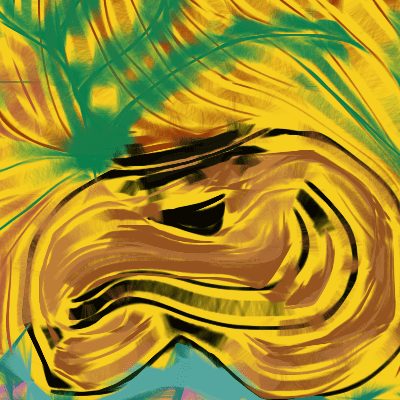Once again I find myself still reeling from not only the onslaught of terror that is being perpetrated in the name of Israeli expansionism, but also the apathetic and two-faced world in which we dwell. The disconnect between the kleptocrats who rule us (disguised thinly as bourgeois democrats) and those of us who appear to…
Category: music
Poetry for the Peeps! Silvio Rodriguez on Chile
This September 11 2023 marks 50 years since the terrible coup in Chile, replacing democratically elected progressive President Salvador Allende with CIA and ITT backed dictator General Pinochet. Assassinating Allende and torturing and killing hundreds and hundreds of other local activists, artists and social organizers, the new military government brought in the first Neo-liberal experiment…
Season of Verses
I haven’t been on the blog for quite a while. 2021 is proving to be a year of elusive concentration, spiralling exhaustion, sadness, and intense physical pain. I have re-acquainted myself with some drawing, although I have been reading about the state of the world and am often disturbed by what I see our little…
Who’s Your Troubadour? Fifty Years of Chico Buarque
More than fifty years ago, a young singer songwriter burst on to the exciting and boundary breaking music scene in Brazil, a country grappling with the legacy of cruelty, colonization, migration, and above all, enslavement. Burgeoning movements for racial and regional equality, along with student and feminist movements, workers, and small peasantry, found themselves clamouring for…
A Little Somethin’ for Megan Markle?
I’ve not been able to watch the fall of the British Monarchy and the Republican Revolution as televised by Oprah. Just not happening! Every time I think of the British royal family, I am reminded of Sue Townsend’s classic, The Queen and I, a masterpiece of Republican humour. As you’ve guessed, I haven’t succumbed yet…
Solstice 2020
Today marks the shortest daylight in our hemisphere, and the arrival of winter’s official season. But as of tomorrow, the days will lengthen again imperceptibly, and for those of us who need the light, like morning glories or sunflowers, hope will gradually be born anew. Indigenous and pagan peoples celebrated and celebrate the energies and…
Post-Equinoctial Saudade
No much up to writing lately, and they say a picture is worth a thousand words. 5 Septembers ago, the equinox gave me the gift of a new face. I was afflicted with a virus called Bell’s Palsy. It changed my life. We are all judged on first appearances. I used to be excruciatingly self-conscious…
Poetry for the Peeps!
Just this past week, Cuba had its Saint day, as La Virgen de la Caridad de Cobre, her patron saint, was celebrated in Santiago de Cuba on September 8th. On the 12, Yoruba deity, Oshun, the syncretic counterpart of Cachita (Caridad), daughter and goddess of rivers, love, femaleness, guile, and beauty, is celebrated. One of…
Love in the Time of Coronavirus
Many people have started to ask me why I have not put anything on this blog in more than a month. Since I started this project a year and half ago, I have tried to respond to issues that have moved me deeply, created a moral restlessness, and an artistic response. I believe that art–…
Jazz Cats! Music to Explore and Enjoy!
Throughout the last year, since I started this blog, I’ve been delving into the weighty topics of racism, profits before people, the colonization of indigenous peoples, destruction of the environment, and the like. But sometimes I need to refresh and recharge. Music is a key part of getting through being isolated, as the coronavirus rages…
The Soloist
I’ve been having a hard time with this solo-self-isolation. All members of my family are thousands of miles away, experiencing their own lockdowns. Music, books, cleaning, and cooking are losing their charms after the 2 weeks I’ve been doing this! And I fear there will be weeks more. As a person with disabilities that make…
COVID19 Kills Postmodernism!
The other day, a friend asked me if I had been writing. The truth of the matter is, being solitary sometimes makes me unable to concentrate. I think it’s ironic, that I have not watched Netflix once, since the start of official self isolation for elders and those with pre-existing conditions. Part of this has…
Hey, Bobby Marley!
If Bob Marley (1945-81) were alive today, it is likely that he would be assassinated again, by the U.S. government and its agents. His 79th birthday would be today, February 6th, although he perished at the age of 36, a man in the prime of his music, lyrics, and creativity. It is fitting he was…
Chile: Forbidden to Forget…
I was first introduced to the world of Chileans in exile, in the late 1970s, as adults and children fleeing political repression, torture, kidnapping, political rape and murder, arrived in Canada. In fact, Chile had not been know for mass migration until the political banishment of left and progressive sectors under the Generals. Chile’s self-image, shaped…
Indigenous Uprising on Columbus Day
I am a strong supporter of the movement throughout the U.S. and Latin America and the Caribbean to stop celebrating Columbus Day. Critics of the pro-Colombus status quo signal to the cruelty and harshness of Spanish empire-building and by extension, European and British colonization efforts in the Americas. Genocide of indigenous persons, the wholesale buying…
